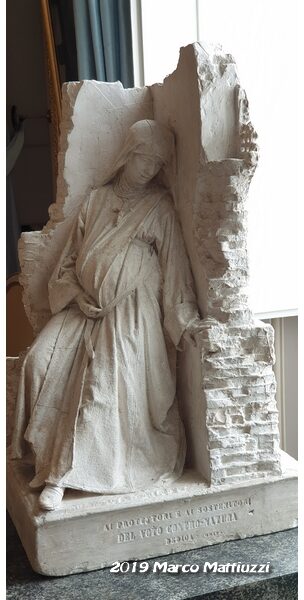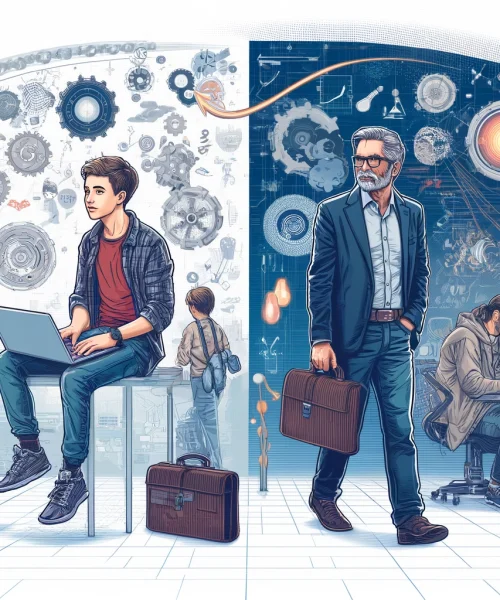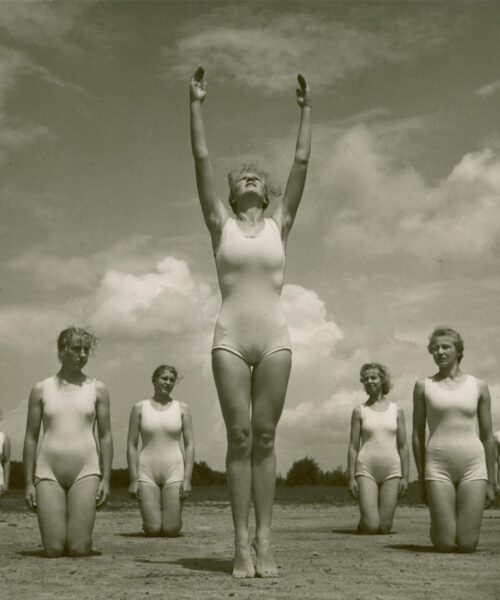Introduction
In an increasingly diverse and interconnected world, inclusive education within family units is proving to be essential in building a harmonious society. A family environment that fosters the acceptance of differences plants the seeds of an open mindset in future generations, aiding in the development of adults who value diversity rather than fear it. This article underscores the significance of dedicating specific family events to the celebration and acceptance of differences, be they cultural, physical, gender-based, or otherwise.
Simultaneously, the article sheds light on the critical role that child-rearing plays in molding open minds. When parents encourage their children to explore, appreciate, and respect the world’s diversity around them, they contribute to shaping individuals capable of empathetically embracing differences in others.
Moreover, the article examines the role of naturism as a means to promote authenticity and acceptance. Naturism, with its emphasis on harmony with nature and the acceptance of the human body in its diversity, can be a powerful educational tool in teaching self-acceptance and respect for others. Through an authentic and unbiased approach to human nature, naturism can help demystify and normalize physical differences, contributing to a more welcoming and tolerant society.
Family Education for Diversity Acceptance: Benefits and Methods
The importance of family education centered on diversity acceptance cannot be underestimated. Such an approach has numerous benefits, both for individual family members and for society at large.
Firstly, family group events that emphasize the importance of diversity acceptance foster cohesion within the family unit. These events can include activities like reading stories that celebrate diversity, participating in cultural festivals, watching films or documentaries about various social, racial, or cultural groups, and even preparing and tasting foods from different cultures. Through such activities, family members have the opportunity to interact and share experiences in a context that promotes mutual respect and understanding.
Secondly, an inclusive family environment can significantly impact children’s education regarding diversity acceptance. Parents who display an attitude of openness and acceptance towards differences encourage their children to do the same. Children, in turn, are more likely to develop a tolerant and respectful attitude towards others, regardless of their differences.
Lastly, family education that promotes diversity acceptance contributes to shaping individuals who are ready to interact respectfully and inclusively in an increasingly diverse society. This not only enriches the life of each individual, allowing them to appreciate and value different cultures, ideas, and perspectives but also helps create a more cohesive and harmonious society.
Raising Open-Minded Children: A Tool for Diversity Acceptance
Educating children with an open mind is a powerful and essential tool for building a society where diversity is not only tolerated but actively accepted and celebrated. This approach involves promoting key values and skills that can help children develop an inclusive mindset.
First and foremost, it is important to encourage children to explore and develop their personalities in a bias-free environment. This means allowing them to freely express their feelings, interests, and ideas, as well as to experiment and discover their passions. Such an open and welcoming environment contributes to building a strong and secure identity, a crucial element for the ability to respect and appreciate the identities of others.
Additionally, it is vital to educate children to understand and respect differences in others. This can be achieved by encouraging curiosity about different cultures, traditions, and lifestyles. For example, parents can introduce books, films, music, and food from various cultures, encourage friendships with peers from different backgrounds, and discuss topics such as race, religion, sexual orientation, and disability in an open and respectful manner.
Finally, parents can foster a sense of empathy in their children. This means teaching them to put themselves in others’ shoes, to understand their feelings and perspectives, and to respond with kindness and respect. These skills are fundamental for building positive and respectful relationships with others, regardless of their differences.
In summary, raising children with an open mind is a process that requires commitment and dedication, but the benefits that stem from it – increased tolerance, respect for diversity, and inclusivity – are invaluable both for the individual and for society as a whole.
Naturism as a Means to Promote Authenticity and Acceptance
Naturism, also known as nudism, is a practice and lifestyle philosophy that favors direct and respectful contact with nature, often through the absence of clothing. This approach has profound implications for promoting authenticity and acceptance, both on a personal and social level.
On the individual plane, the practice of naturism fosters self-acceptance. Without the use of clothes, we are encouraged to see ourselves in the most authentic and natural way possible. This acceptance of one’s body in its natural form can help overcome insecurities and anxieties related to physical appearance, promoting a positive self-view.
Socially, naturism can contribute to promoting respect for the diversity of human bodies. In today’s society, we are constantly presented with a body beauty ideal that is difficult, if not impossible, to achieve. This can lead to harmful stereotypes and prejudices about the human body. However, the practice of naturism highlights the variety and uniqueness of human bodies, thus encouraging a more realistic and accepting view of human physical form.
Furthermore, naturism emphasizes equality among individuals. When clothes are removed, many of the external signs of status and social role are also eliminated. This can help reduce social barriers, promoting a sense of equality and community.
Therefore, naturism can represent a powerful tool for promoting authenticity and acceptance. Through self-acceptance and respect for the diversity of human bodies, it contributes to creating a more inclusive society, where everyone is free to be authentically themselves.
Education for Free Sexuality: A Fundamental Piece of Acceptance and Authenticity
Another important aspect of fostering diversity acceptance and authenticity in families and society at large is education for free sexuality. This is based on the understanding and acceptance that sexuality is a natural and healthy aspect of human life and that sexual identities and expressions vary widely among individuals.
Education for free sexuality should begin in families, where parents have the opportunity to create an open and safe environment to discuss sexuality. This can include conversations on topics such as consent, sexual diversity (including different sexual orientations and gender identities), sexual and reproductive health, and respect for others’ sexual rights.
Educating children to respect and accept sexual diversity is a fundamental step in promoting a more inclusive and tolerant society. In a world where homophobia, biphobia, transphobia, and other forms of discrimination are still prevalent, it is crucial to encourage an attitude of acceptance and respect for all sexual identities and expressions.
Moreover, education for free sexuality is closely linked to promoting authenticity. When people are free to explore and express their sexuality without fear of discrimination or judgment, they can live more authentically and satisfyingly.
We can thus affirm that education for free sexuality is a key element of diversity acceptance and the promotion of authenticity. Through education, we can build families and societies where every individual feels respected and free to express their sexual identity.
Conclusions
Promoting diversity acceptance in family groups is essential for building an inclusive society. Inclusive education, raising children with an open mind, and the practice of naturism are effective tools for achieving this goal. In an ever-more interconnected world, valuing differences is a crucial step toward building a future where every individual is free to express themselves without fear of judgment.












